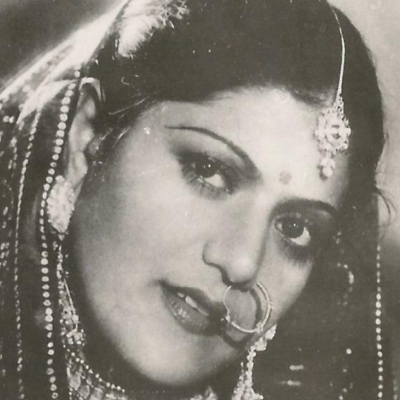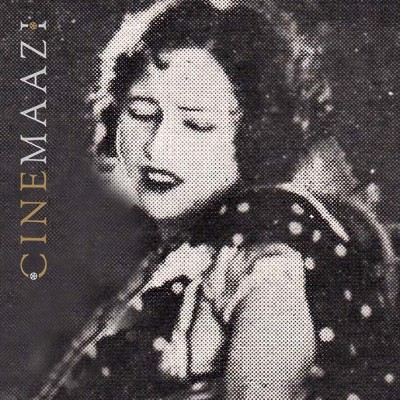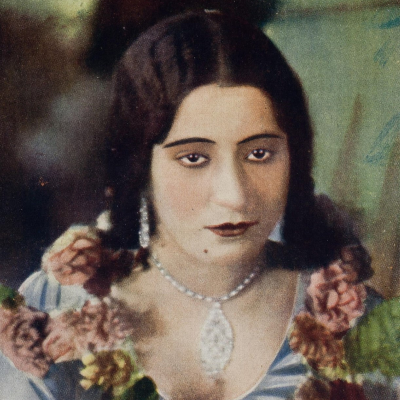Pandit Sudarshan

Subscribe to read full article
This section is for paid subscribers only. Our subscription is only $37/- for one full year.
You get unlimited access to all paid section and features on the website with this subscription.
Not ready for a full subscription?
You can access this article for $2 , and have it saved to your account for one year.
- Real Name: Badri Nath Bhatt
- Born: 1896 (Sialkot, in present-day Pakistan)
- Died: 16 December 1967
- Primary Cinema: Hindi
A prolific writer and editor of newspapers, Pandit Sudarshan’s writing was so acclaimed that his stories were taught in schools. His knowledge of the Hindi language was so extensive that he was commissioned to write textbooks for children by Mahatma Gandhi. Entering into the newly forming arena of Indian cinema, he also went on to write acclaimed stories and dialogues.
Known popularly as Pandit Sudarshan, Badrinath Sharma was born in 1896 in Sialkot in present-day Pakistan. When he came to Lahore in search of work, he found employment as a writer for some news periodicals, where he started writing under the pseudonym Sudarshan. At 20, he became the chief editor for an Urdu newspaper. Following this, he travelled around the subcontinent for work, as his stories steadily accrued fame. After a long stretch of travelling, Sudarshan settled in Kanpur for a while, where he started writing advertisements for the Lal Imli Mill. However, his active participation in the non-cooperation movement in 1930 meant that he could not hold this job down for long either.
Pandit Sudarshan returned to Lahore and started publishing an Urdu newspaper titled Chandan. His acclaim spread so far and wide that he received an invitation from Bharat Laxmi Pictures in Calcutta to write the screenplay and song lyrics for their upcoming film, Ramayan (1934). The film proved to be immensely successful, and Sudarshan quickly followed it up with the songs for New Theatres’ Dhoop Chhaon (1935) and Dharti Mata (1938), both directed by Nitin Bose. The song “Teri gathri mein laaga chor musafir jaag zara” became popular across the country.
His accomplishments in Calcutta encouraged Sagar Movietone to invite Pandit Sudarshan to Mumbai to work with them. The first film he wrote the lyrics for under this banner was Gramophone Singer (1938). He also penned the songs for the film Kumkum, The Dancer (1940). His big break came with Sohrab Modi’s epic film Sikandar (1941), based on the story of the war between Alexander the Great and Porus of India. Sudarshan wrote the dialogues and songs for the film, which was such a hit that its script was later released by Sohrab Modi in the form of a book. The book itself sold two lakh copies. Meanwhile, Pandit Sudarshan did not discontinue his literary activities, and continued to publish his fiction.
Sudarshan was also associated with V Shantaram’s unforgettable film Padosi (1941) as its lyricist. He went on to compose the lyrics for songs featuring in hugely successful films like Phir Milenge (1942), Prithvi Vallabh (1943) and Parakh (1944). He wrote the screenplay and dialogues for a few more films, but was not credited for these.
In comparison to other lyricists of his time, Sudarshan wrote for very few films that survive on the record. By the sixties, he started distancing himself from filmmaking processes. After a protracted battle with illness, Sudarshan passed away in Mumbai on 16 December 1967.











.jpg)



